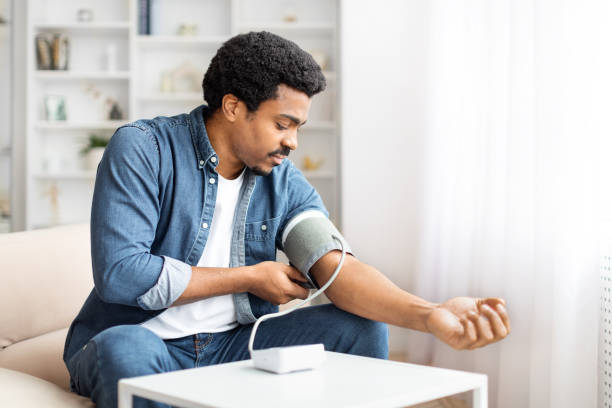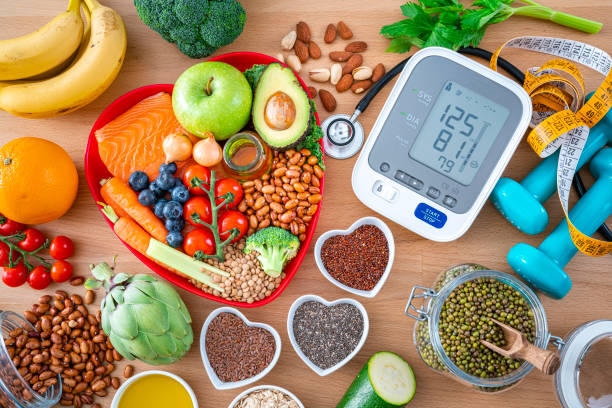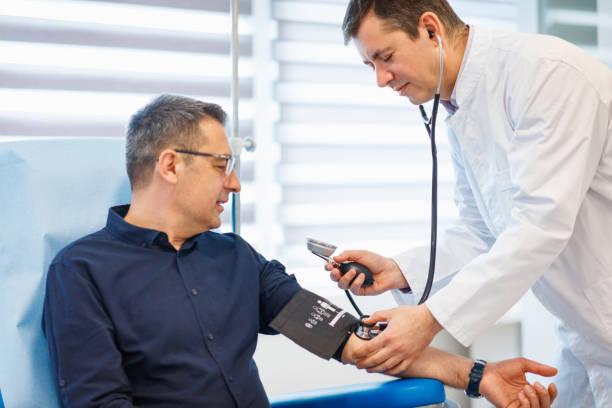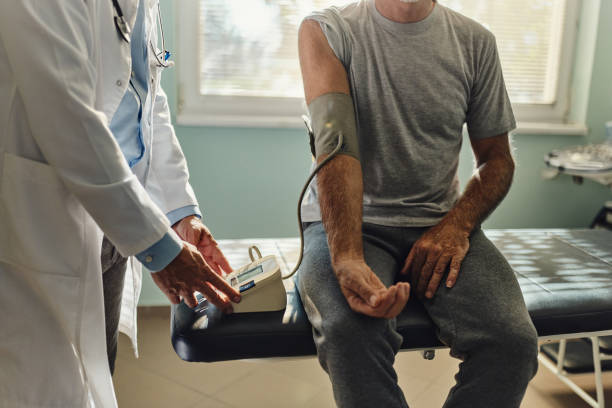Understanding the Link Between High Blood Pressure and Erectile Dysfunction
High blood pressure, or hypertension, is a common health problem. It happens when the force of blood pushing against your artery walls is too high. This force is measured in millimeters of mercury (mmHg). A normal reading is around 120/80 mmHg. If the numbers stay high over time, it can lead to serious health issues.
Over time, this pressure can harm your blood vessels and your heart. It can also increase your risk of heart attack, stroke, and kidney damage. Many people don’t feel symptoms, so it’s often called a “silent killer.” That’s why regular checkups are important.
But did you know it can also affect your sex life?
Yes—high blood pressure can lead to erectile dysfunction (ED). This means trouble getting or keeping an erection firm enough for sex. It happens because high blood pressure can damage blood vessels, reducing blood flow to the penis. Without enough blood flow, getting an erection becomes harder.
It’s more common than many think, especially in men over 40. Some men may notice it slowly over time, while others may see a sudden change. ED can also affect self-esteem and relationships, making it important to talk to a doctor.
Let’s explore how these two conditions are connected and what you can do about it.
What Is Erectile Dysfunction?
Erectile dysfunction is when a man has ongoing trouble getting or keeping an erection. It may happen once in a while, or it may be a regular issue. Some men may get an erection but lose it too soon. Others may not be able to get one at all. ED can affect your confidence, relationships, and overall well-being.
It can lead to stress, anxiety, or even depression. Some men may avoid intimacy, which can strain their relationship with a partner. Talking to a doctor can help find the cause and the right treatment.
Common Causes of ED:
- Poor blood flow
- Nerve damage
- Hormone imbalances
- Stress or anxiety
- Certain medications
High blood pressure affects many of these areas, especially blood flow.

How High Blood Pressure Affects Erections
An erection happens when blood flows into the penis and stays there during sex. The brain sends signals that relax the blood vessels, letting more blood in. This extra blood fills the spongy tissue, making the penis firm. If the blood flow is weak or blocked, it’s hard to get or keep an erection.
High blood pressure, clogged arteries, or other health problems can slow blood flow. When this happens, the penis doesn’t get enough blood to stay firm. This can lead to erectile dysfunction over time.
High blood pressure can cause:
- Narrowed arteries (atherosclerosis)
- Damaged blood vessel lining
- Less flexible blood vessels
These changes reduce blood flow, especially to the penis. High blood pressure can make arteries stiff and narrow, which limits how much blood can pass through. Without enough blood, erections become harder to achieve.
The penis needs strong, steady blood flow to get and stay firm. When that flow is blocked or slowed down, getting an erection becomes difficult. Over time, this can lead to regular problems with sexual performance.
Medications for High Blood Pressure and ED
Some blood pressure medicines may also lead to ED as a side effect. These include:
- Beta-blockers (like metoprolol and atenolol)
- Diuretics (water pills)
- Some antidepressants
These drugs can affect your nervous system or reduce blood flow, leading to ED.
But not all medications cause this problem. Different drugs affect the body in different ways. In fact, some blood pressure meds, such as ACE inhibitors or calcium channel blockers, have a lower risk of causing ED. These medications help relax blood vessels without blocking blood flow to the penis.
They can control high blood pressure while still allowing normal sexual function. If ED becomes a problem, a doctor may suggest switching to one of these options. Always talk to your doctor before making any changes.
Talk to your doctor before stopping or changing any medication. Never quit a prescribed drug without medical advice.
Risk Factors That Raise Your Chances of Both
Some lifestyle habits and health problems can increase the risk of both high blood pressure and ED. These include:
- Smoking
- Drinking too much alcohol
- Lack of exercise
- Poor diet (high in salt and fat)
- Obesity
- Diabetes
- High cholesterol
These factors hurt your heart and your sexual health at the same time.
Signs You Shouldn’t Ignore
If you have high blood pressure and start noticing any of the following, talk to your doctor:
- Trouble getting an erection more than 25% of the time
- Weaker erections than before
- Less interest in sex
- Shortness of breath or chest pain during sex
These could be signs that your blood pressure is affecting your sexual health—or that something else is going on. Trouble with erections can be an early warning sign of blood vessel problems. It might mean that blood isn’t flowing well through your body.
It could also point to other health issues like diabetes, stress, or hormone imbalances. That’s why it’s important not to ignore these changes. Talking to a doctor can help find the cause and guide you toward the right treatment.

Steps to Improve Both Conditions Naturally
The good news is that many of the same healthy habits help both high blood pressure and ED. Here’s what you can do:
1. Eat a Heart-Healthy Diet
Try the DASH diet (Dietary Approaches to Stop Hypertension). It includes:
- Fruits and vegetables
- Whole grains
- Lean meats and fish
- Low-fat dairy
- Nuts and seeds
- Less salt and sugar
2. Get Regular Exercise
Aim for at least 30 minutes of moderate activity, 5 days a week. This helps:
- Lower your blood pressure
- Improve blood flow
- Boost testosterone levels
- Reduce stress
Even walking, swimming, or cycling counts.
3. Quit Smoking
Smoking damages blood vessels and lowers nitric oxide levels—a key part of erections. Nitric oxide helps relax blood vessels so more blood can flow to the penis. When levels are low, it becomes harder to get or keep an erection. Over time, smoking makes arteries stiff and narrow, which further limits blood flow.
Quitting can improve both ED and heart health. It can also boost energy, improve lung function, and lower the risk of stroke and heart attack. The sooner you quit, the better your body can start to heal.
Need help? Visit Smokefree.gov for tips and support.
4. Limit Alcohol
Too much alcohol can raise blood pressure and lower sexual performance. Stick to:
- No more than 2 drinks per day for men
- Or better yet, limit it even more
5. Manage Stress
Chronic stress raises blood pressure and affects your mood and sex drive. Try:
- Deep breathing
- Meditation
- Yoga
- Talking to a counselor
Treatment Options for ED and High Blood Pressure
You are not alone. Many men deal with this problem, and there are effective treatments.
Medical Treatments for ED:
- Oral medications (like Viagra or Cialis) — These help increase blood flow to the penis. Talk to your doctor to make sure they are safe with your blood pressure meds.
- Vacuum devices — These create an erection using suction.
- Penile injections or implants — For more serious cases.
- Counseling — Especially helpful if stress or anxiety is part of the problem.
Work with a Specialist
A urologist can help find the cause of ED and offer treatment options. A cardiologist can help manage your blood pressure. It’s smart to involve both for the best care.
Talking to Your Doctor: What to Say
It might feel awkward, but your doctor is there to help—not judge. Start by saying:
“I’ve been having trouble with erections, and I also have high blood pressure. Could they be connected?”
Bring a list of:
- All medications and supplements you take
- Any recent symptoms
- Questions or concerns
The more your doctor knows, the better they can help.

FAQs About High Blood Pressure and ED
Can ED be the first sign of heart problems?
Yes. ED can be an early warning sign of heart disease. Blood vessels in the penis are smaller than those in the heart. So, ED may show up before other heart symptoms.
Will treating high blood pressure help with ED?
It might. Lowering your blood pressure improves blood flow, which can help with erections. Some men notice improvement after changing lifestyle habits or medications.
Are natural supplements safe for ED?
Be careful. Some over-the-counter supplements can be unsafe—especially with blood pressure meds. Always talk to your doctor before trying any new product.
Final Thoughts: Don’t Suffer in Silence
High blood pressure can cause erectile dysfunction—but there is hope. You are not alone, and help is available. With the right care, you can manage both conditions and enjoy a full, healthy life. This may include taking prescribed medicine, eating a heart-healthy diet, and staying active.
Managing stress and getting enough sleep also play a big role. In some cases, treatment for ED may involve counseling or other support. The key is to talk to your doctor and make a plan that works for you.
Don’t be afraid to talk about it. You’re not alone, and help is available.
Ready to Take Control?
If you’re dealing with high blood pressure and ED, take action today:
✅ Schedule a check-up with your doctor
✅ Review your medications
✅ Start small changes in your diet and lifestyle
✅ Ask about safe treatments for ED
Your health—and your confidence—matter.

